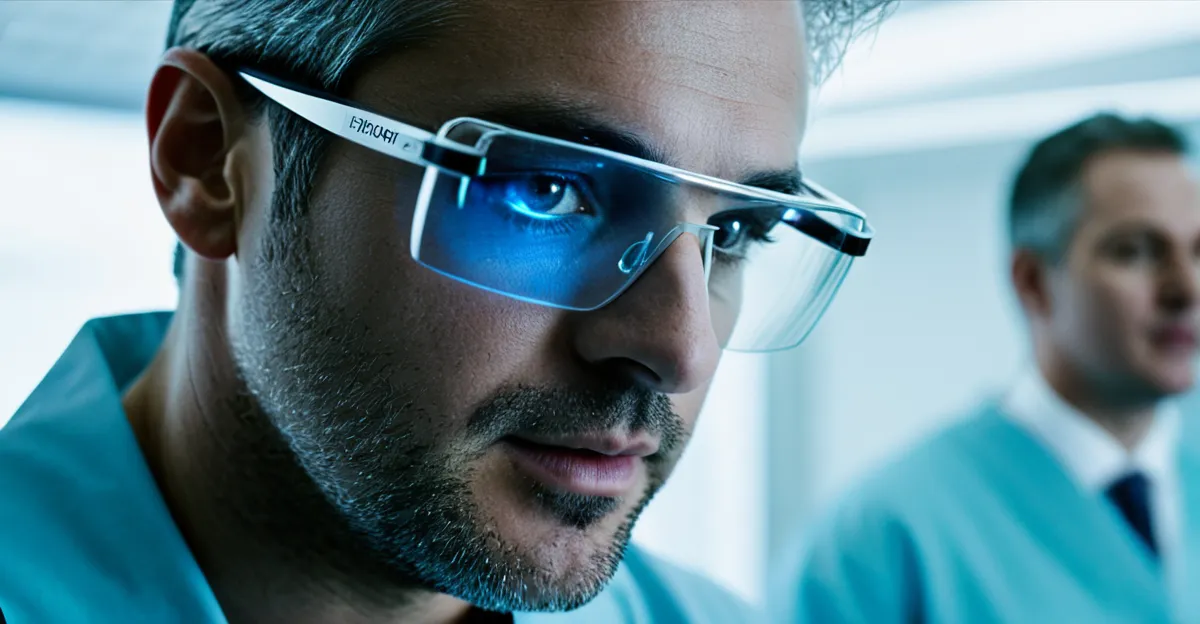Overview of Technological Innovations in Healthcare
The field of healthcare has undergone significant transformations due to technological innovations, reshaping patient care and industry practices. Historically, the integration of technology in healthcare began with simple tools like stethoscopes and thermometers, but it has dramatically evolved into complex systems supporting intricate procedures.
In recent years, healthcare advancements have been pivotal in enhancing the quality and efficiency of medical services. For instance, advancements in UK healthcare technology have introduced electronic health records, improving data accessibility and patient management. This continuous innovation is crucial for improving patient outcomes and streamlining healthcare processes, ensuring that systems remain both efficient and cost-effective.
In the same genre : How Are Mental Health Services in the UK Evolving in Response to Recent Challenges?
The importance of these technological strides should not be underestimated. As the industry adapts to modern challenges, the role of technology becomes ever more critical, offering new ways to diagnose, treat, and manage healthcare conditions effectively. By prioritizing innovation, the healthcare sector can maintain its focus on delivering quality care while also addressing emerging challenges and demands.
Key Technological Advancements in UK Healthcare
Technological innovations have been at the forefront of the transformative change in the UK health sector, defining the way healthcare is delivered. This section dives into three significant advancements reshaping the landscape: telemedicine, artificial intelligence, and wearable technology.
Also to discover : What Are the Emerging Health Innovations Impacting the UK’s Future?
Telemedicine and Remote Consultations
Telemedicine has emerged as a pivotal healthcare advancement, allowing patients to access medical consultations without needing physical visits. This growth in telehealth solutions has been especially notable in the UK, where remote consultations have increased healthcare accessibility, particularly in underserved areas. Patients benefit from reduced travel and waiting times, while healthcare providers can manage a broader range of cases efficiently. Several UK-based case studies highlight these benefits, showcasing effective integration of telehealth within existing healthcare systems.
Artificial Intelligence Applications
Artificial intelligence (AI) is revolutionizing the diagnostic and patient management processes. In UK healthcare, AI facilitates rapid data processing to support clinicians in making accurate diagnoses and improving patient outcomes. Predictive analytics powered by AI enables healthcare professionals to anticipate potential health issues before they arise. However, with these benefits come challenges. Ethical considerations and regulatory hurdles, such as ensuring transparency and mitigating biases, remain crucial as AI continues to evolve into a core element of digital healthcare.
Wearable Technology Impact
The rise of wearable technology has enhanced health monitoring and data collection, empowering patients to engage actively in their health management. In the UK, wearables like smartwatches and fitness bands provide continuous feedback on vital statistics, such as heart rate and physical activity levels, promoting lifestyle changes and self-management of chronic conditions. Successful examples include collaborations between tech companies and healthcare providers to develop personalized patient care plans based on real-time data collected from these devices.
Benefits of Technological Innovations
Advancements in healthcare technology have reshaped the industry, enhancing both efficiency and the quality of patient care. These technological innovations increase accessibility to medical services, particularly vital for remote or underserved areas. Telemedicine allows patients to consult with healthcare providers without travelling, reducing associated costs and wait times. Medical professionals benefit too, as they can efficiently manage a broader range of cases.
Furthermore, technology significantly improves patient outcomes by facilitating quicker diagnosis and more accurate treatment plans. Innovations in artificial intelligence offer predictive analytics, allowing for proactive health management, often catching potential issues before they escalate. These advancements translate into better health results and patient satisfaction.
Cost-effectiveness is a substantial advantage of integrating technology into healthcare. By automating processes and improving resource allocation, healthcare systems can operate more economically. Wearable technology, for example, enables continuous health monitoring, empowering patients to manage their own health proactively and reducing the need for frequent hospital visits. This self-care approach lightens the financial burden on healthcare facilities.
Overall, embracing technological innovations offers numerous benefits for healthcare systems and stakeholders, fostering a more efficient, patient-centered service delivery model.
Challenges in Implementing Technology in Healthcare
As the healthcare industry embraces technological innovations, several challenges arise that could impact the effective implementation of these advancements.
Technological Infrastructure and Integration
The importance of having a robust IT system cannot be overstated in the digital transformation of healthcare. Interoperability challenges often hinder seamless communication between diverse systems, making it difficult for healthcare providers to effectively collaborate and share data. In addition, substantial investment is required to establish and maintain these systems, which can strain the resources of some healthcare organizations. Adequate resource allocation is necessary to ensure that technological advancements are fully integrated into existing processes, ultimately enhancing the delivery of care.
Data Security and Patient Privacy
One of the foremost concerns in adopting new technologies is the risk associated with digital health records. Strategies to enhance security measures must be prioritized to protect sensitive patient information from potential breaches. Compliance with regulations such as the General Data Protection Regulation (GDPR) is imperative to safeguarding patient privacy while leveraging technological advancements. Healthcare institutions need to adopt rigorous data encryption and cybersecurity protocols to maintain trust and ensure data integrity.
Addressing Healthcare Inequalities
Ensuring that technological innovations are accessible to all segments of the population is a significant challenge. Bridging the digital divide is essential to prevent exacerbating existing healthcare inequalities. Policies must be implemented to guarantee that diverse populations have equitable access to technological advancements. This includes providing training and resources to underserved communities to enable them to benefit from new healthcare technologies. By focusing on inclusive practices, healthcare providers can ensure that innovation serves all individuals, irrespective of their socioeconomic status or geographical location.
Future Trends in Healthcare Technology
The future of healthcare technology promises to be both exciting and transformative, with innovations continuing to reshape the way medical services are delivered. Telehealth is expected to maintain its momentum, evolving with more sophisticated platforms that offer enhanced features such as virtual reality consultations and advanced remote monitoring capabilities. These tools will further democratize access to healthcare, breaking down geographical and logistical barriers for patients.
Artificial Intelligence (AI) is projected to play an increasingly central role in healthcare, driving advancements in precision medicine and personalized care. AI’s evolving capabilities are likely to support clinicians in delivering more accurate diagnoses and tailored treatment plans. Future scenarios also envision AI-assisted robotic surgeries and smart hospitals that use AI for efficient patient management and resource allocation.
Moreover, emerging technologies such as blockchain and augmented reality (AR) are on the horizon, poised to revolutionize healthcare data management and patient interactions. Blockchain could offer secure, transparent frameworks for handling sensitive health records, while AR could enhance medical training and patient education through immersive, interactive experiences.
As these technological trends unfold, they will continue to forge a path toward more efficient, accessible, and patient-centered healthcare systems, addressing modern challenges with innovative solutions.










